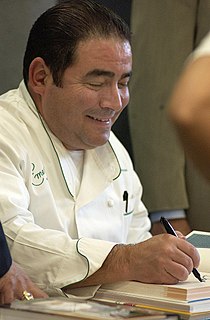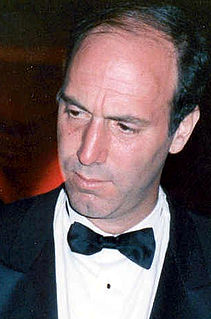A Quote by Steve Ells
You know, I hate to borrow Apple's tag, but think different. Really. From the very beginning. I didn't know what the fast-food rules were. I got my training at the Culinary Institute Of America, and then I opened up a fast food place according to fine dining rules.
Related Quotes
I think America's food culture is embedded in fast-food culture. And the real question that we have is: How are we going to teach slow-food values in a fast-food world? Of course, it's very, very difficult to do, especially when children have grown up eating fast food and the values that go with that.
I think Americas food culture is embedded in fast-food culture. And the real question that we have is: How are we going to teach slow-food values in a fast-food world? Of course, its very, very difficult to do, especially when children have grown up eating fast food and the values that go with that.
I think food trucks are the new answer to American fast food. The idea of raising two or three million dollars and going through red tape to open a restaurant, there's lots of barriers to success. There's a really easy jumping place for food trucks. It's very hip and acceptable for new chefs to open a food truck first.
To a very great extent, it's the fast-food industry that really industrialized our agriculture - that drove the system to one variety of chicken grown very quickly in confinement, to the feedlot system for beef, to giant monocultures to grow potatoes. All of those thing flow from the desire of fast-food companies for a perfectly consistent product.
Eric Schlosser's book on the economy and strategies of the fast-food business should be read by anyone who likes to take their children to fast-food restaurants. I shall certainly never do that again. He employs a long, cold burn, a quiet and impassioned accumulation of detail, with calm, wit and clarity. (...) Fast Food Nation is witness to the rigour and seriousness of the best American journalism, readable, reliable and extremely carefully done.




























